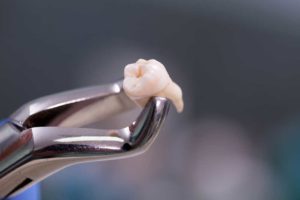
Has your dentist suggested that you have your wisdom teeth removed? If you’re really feeling worried about undertaking surgery, you’re not the only one. Many people’s wisdom teeth emerge in between the ages of 17-25 and create issues that can only be fixed if they are removed. Understanding what to anticipate for this treatment can ease your dental anxiety and assist you in planning for your surgical treatment. You’ll be back to your daily tasks in no time!
Why do I need my wisdom teeth removed?
Wisdom teeth, also called “third molars”, are the last teeth to establish in the mouth. For most individuals, there is not nearly enough space in their mouth for wisdom teeth. When these teeth start emerging, they commonly move diagonally or horizontally and become impacted. Without treatment, they can hurt nearby teeth, cause infection, and lead to various other issues. If you visit a dental professional consistently, she or he can check your wisdom teeth with regular x-rays and tell you when it’s time to have your teeth removed.
What can I anticipate on the day of my surgical procedure?
In most cases, you’ll just require a single surgery to remove some or all of your wisdom teeth. This surgical procedure is finished while you are under sedation. Different levels of sedation exist, so make sure to talk with your dentist about which alternative is right for your treatment as well as your degree of anxiety. When you are comfortable, your dental professional will use customized surgical tools to delicately remove your wisdom teeth. This surgical procedure generally takes less than a few hours. Afterward, you can relax in the recovery room as long as needed before you have a person drive you home.
How can I help accelerate my recovery as well as recovery?
You’ll need to rest for a couple of days after your wisdom teeth removal. Nonetheless, there are steps you can take to guarantee you have the healthiest recuperation. Try not to consume solid foods or clean your teeth till your dental professional states you can. Avoid intensive exercise and do not smoke. To keep the blood clots undisturbed, try not to drink with a straw or spit. You can delicately rinse your mouth with salt water for the first few days after surgical treatment.
Schedule your appointment
If you’re not experiencing any pain or swelling around your wisdom teeth or back molars, it’s still an excellent idea to have a dental practitioner check their development. Schedule an appointment with our local office today and keep your mouth healthy!

